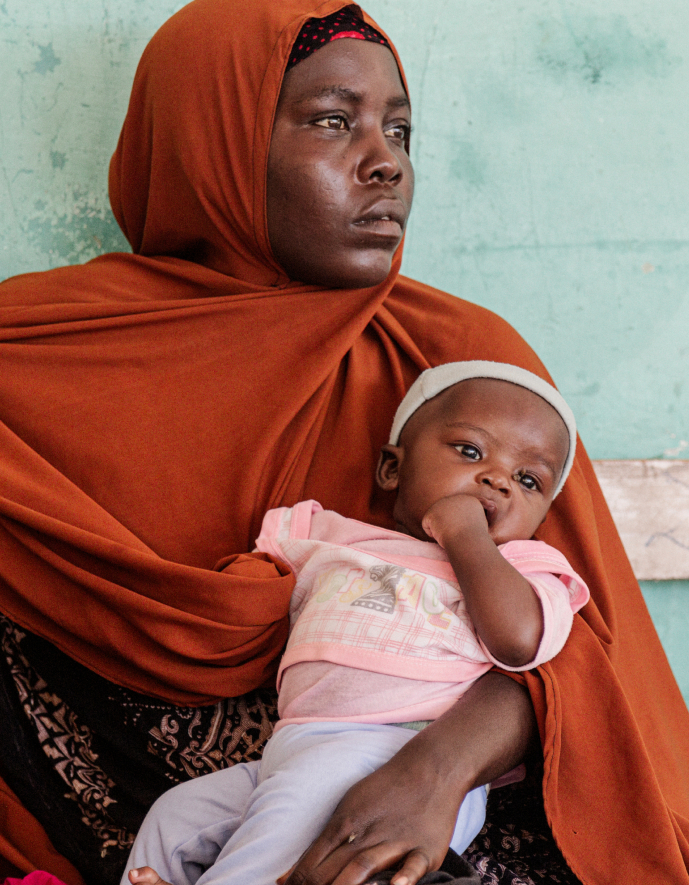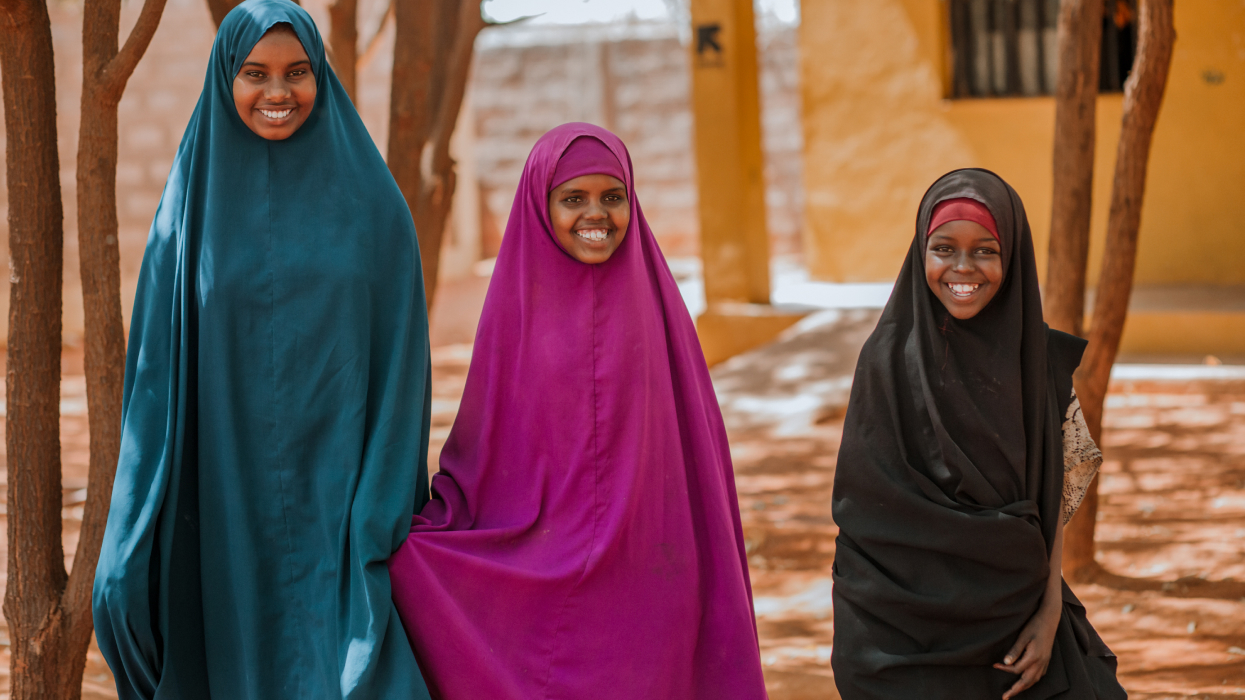
Women-Centered Health
Designing solutions for women-centered health prorams to save lives and provide choice.
The Problem
Too often in humanitarian contexts, mothers and newborns are dying at alarmingly high rates in places affected by crisis and conflict. Countries with current humanitarian appeals account for 64% of maternal deaths and 50% of all newborn deaths. Many of these deaths are preventable, yet critical sexual and reproductive healthcare remains inaccessible, meaning millions of women and girls in crisis lack access to basic contraception, information on safe pregnancies, and abortion care if needed.
Why current approaches are inadequate
Many of these deaths are preventable with existing interventions, but this care is almost exclusively delivered in formal health facilities like clinics or hospitals. For women living in conflict settings, it might be extremely dangerous or costly to reach the closest facility. Moreover, these facilities may be damaged from conflict and operating with reduced staff, leading to an overall reduction in accessible places of care.


Our solution
Instead of expecting women to travel long distances for critical and lifesaving care, Airbel is designing interventions to bring healthcare directly to homes and communities, even in the most challenging of contexts. Our solutions will decentralize care from facilities, providing products, delivery channels, and support for women to self-manage their contraception and abortion needs. The IRC is innovating and scaling simple, cost-effective, and proven solutions that result in fewer unintended pregnancies and unsafe abortions, safer pregnancy, and childbirth, reduced physical and emotional harm from gender-based violence, and reduced morbidity from sexually transmitted infections and HIV.
Shifting the status quo
Crucial to our innovations in women-centered care, is advocating for international organizations and governments to expand healthcare access for women. Airbel teams are highly engaged with health ministries to drive change through evidence and policy shifts. This work has the opportunity to make access to sexual and reproductive health a reality for tens of millions of women in the hardest-to-reach contexts
Related Projects
Advancing Self-Care for Women in IDP Camps in Borno State
Enhance access to and ease of self-management of contraceptive needs for women in Internally Displaced Persons (IDP) camps in Borno state, Nigeria.
Explore ProjectAssessing the feasibility and effectiveness of COMPASS programming to prevent violence against adolescent girls
Findings from these studies combined indicate very high acceptability and feasibility of the COMPASS program. While no significant changes related to violence were observed, numerous secondary outcomes such as gender norms, aspirational attitudes, and increased social networks were improved.
Explore ProjectBuilding a Research Foundation for the Integration of Menstrual Hygiene Management into Emergencies
Community-Based Maternal and Newborn Care
Bringing life-saving maternal and newborn care interventions closer to home in humanitarian and fragile settings
Explore ProjectDeterminants of Uptake of Intermittent Preventative Treatment for Malaria Among Pregnant Women in South Kivu
DMPA-SC Policy and System Analysis
Assessing the health system's readiness to implement and scale DMPA-SC.
Explore Project
Latest Updates
-
Health system resilience during COVID-19 understanding SRH service adaptation in North Kivu
There is often collateral damage to health systems during epidemics, affecting women and girls the most, with reduced access to non-outbreak related services, particularly in humanitarian settings. This rapid case study examines sexual and reproductive health (SRH) services in the Democratic Republic of the Congo when the COVID-19 hit, towards the end of an Ebola Virus Disease (EVD) outbreak, and in a context of protracted insecurity.
External link -
EQUAL Research Website
Ensuring Quality, Access, and Learning for Maternal and Neonatal Health in Humanitarian Contexts (EQUAL)
External link -
Prioritization of maternal and newborn health policies and their implementation in the eastern conflict affected areas of the Democratic Republic of Congo: a political economy analysis
External link